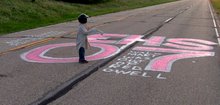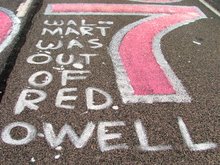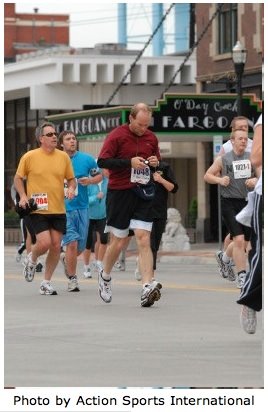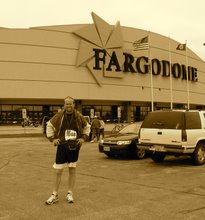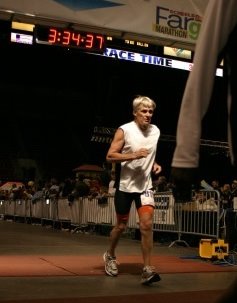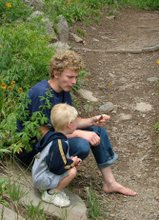From: kelandsmith@gmail.com
Subject: Re: H-Ed: Discussion: A Narrative About Teaching the History of Higher Education
Date: March 29, 2007 4:23:27 PM CDT
To: H-EDUCATION@H-NET.MSU.EDU
Dear Colleagues:
This post got a little lengthy. Marvelous, isn't it, what one will do to avoid a stack of essays that need to be graded? I apologize for the length but hope that at least a few might read on with some perseverance.
I have been a member of the HES for the last 8 years or so (though I have not been able to yet attend a conference), and have read this list pretty faithfully during that time. I am happy to see the present exchange.
It's widely held view that learning is best described as collaboration--let's say "a guide to help enjoy the ride" more than "a sage on a web page." In that spirit, I appreciate the introductions and aphorisms that have been expressed by the appointed ringleaders, but I would like to "take the page" so to speak, and give my own narrative.
I don't so much want to ask questions about methods and techniques as to get folks to think about some of the preconceptions that I think are pretty common among people who teach these courses. In fact I would like to make some suggestions, perhaps by way of narration, that might highlight and possibly challenge some of these preconceptions. Partly because I understand something of the intellectual culture of this list (and which is prominent at schools of education with which I am familiar) I am not eager to directly challenge the statements of others, at least not now. I read several other H-Net lists where such direct challenges are frequent and strong. that type of exchange certainly has a place, but I have not noticed much of that on this list, so I will try my best to behave.
Who I am: I presently teach at a small church-related college in Ellendale North Dakota, where I teach six history courses (including two US History survey courses, two World Civilizations survey courses, an Asian history course, an African History Course, a Sociology course, and a Philosophy course which I have organized as a survey of intellectual history. This is probably way too many courses for one person to teach (some semesters I end up with 14 credits), but such are the realities of small institutions. I try to do my best.
In addition, every few years I have had the opportunity to teach a graduate course entitled "The History of Higher Education in the U.S." (T&L 570) as an adjunct with the University of North Dakota's College of Education and Human Development. I'll be teaching that course again this summer, inshallah.
Before I launch into my own ideas and suggestions and challenges, I would like to talk about my own background a little more. I have long believed that ideas are best understood within a context of lived experience, (even before I began hearing that as a buzzphrase) so perhaps a discussion of my own experience will be tolerated as a useful background to the points I want to get at. I will begin by describing my own graduate education.
I'm a 2001 graduate of the University of North Dakota in Grand Forks, where I earned an M.A. in history in 1998) and a D.A. (Doctor of Arts) in history in 2001. Prior to coming to UND I taught high school history and social studies for six years.
For those unfamiliar with the Doctor of Arts degree (D.A.), it is a pretty rare thing. I've only run into a handful of schools that have such a program. It's oriented toward preparing teachers of undergraduate students, and places somewhat less emphasis on narrowly focused research and somewhat more emphasis on classroom teaching. The history D.A. program at the University of North Dakota requires a minimum of five semesters of half-time GTA work, which involves a minimum of teaching one 3-credit course per semester for four semesters and one full-time semester of teaching, wherein three 3-credit courses are taught. The research component of the D.A. program involves a dissertation that is a bit less rigorous than those of typical Ph.D. programs, and it is typically directed toward themes that are seen to be more pedagogically relevant than might be expected in a history Ph.D. program.
Now, to the focus on higher education history within my own graduate experience.
D.A. students are required to have a "cognate" in another academic department to complement their work within the history department. I chose to take my cognate in the UND School of Education. The first course I took was a graduate course in the History of Higher Education course. It met once per week for three hours. I enjoyed the course, however it was dramatically different from the classes and seminars within the UND History Department. The course did have a research component, requiring one or two papers and some smaller assignments. But we basically read through Rudolph's _The American College and University_, discussing one or two chapters a week, and the content was stimulating enough for us to have some excellent discussions. The professor who taught the course was and is a fine person and a fine teacher, and did show a real interest in history. I thought that with some added background knowledge and historiographical understanding, however, the class would have been quite a bit better.
One of the aspects of this course that motivated me was reading and critiquing Rudolph's classic book, which I am told has been used in more history of higher ed. courses than just about book in the last fifty years, but is now succumbing to newer interpretations. It so happened that I was working on my M.A. thesis at the time. The thesis was a biography of William Maxwell Blackburn, who served as the first president of the University of North Dakota (1884-1885). I had spent weeks at the South Dakota State Historical Society Archives in Pierre in Blackburn's papers, and for me he was turning into an extremely interesting person. I discovered that Rudolph mentioned Blackburn several times in _The American College and University_. This was interesting. What was more interesting, though, was that every reference to Blackburn in Rudolph's book was either demonstrably false or set within a very distorted context. What had happened is that Rudolph got his information about Blackburn (very selectively, I might add) from Louis Geiger's institutional history entitled _University of the Northern Plains_. Rudolph had used this selective information to further a certain caricature of Blackburn, a caricature that I found (and I believe I have conclusively proven) to be quite inaccurate.
Now, this was motivating to me. If Rudolph was demonstrably painting a false picture in the case of Blackburn, what of the many other characters and scenes in the book? I become more aware of the potential for errors that stem from the lack of firsthand empirical investigation. And of the distorting influence that results from casually accepting reigning historiographical assumptions and reading them into the past.
Probably my favorite book that I discovered that year was Colin Burke's _American Collegiate Populations: A Test of the Traditional View_. I liked it not because I necessarily enjoy looking at pages and pages of data charts, but because it used very thorough empirical study to debunk what at the time was the politically correct view of the development of American Colleges and Universities. I cheered regularly as I read through it, charts and all. By the way, I was excited to see Colin Burke's name on this list recently. If you are reading this, Colin, thank you for your contribution to my education.
Now back to the original history of higher education course in which I was a student. The most memorable event in the course was I guess what you would call a "constructivist" presentation by one of the students. She had I think a couple of decades of experience in teaching and administration at tribal schools, and she wanted the class to experience something of Indian culture. So we spent about an hour and a half on the extremely relevant topic of Indian fry bread. We all participated in things like mixing up the flour, salt and sundry ingredients, heating up the frying oil, shaping the dough, getting it out of the hot oil, serving it, and of course, eating it. That last was the best part. We did learn that Indian fry bread was not a truly native product, but an aspect of reservation culture (which relied largely on cheap foodstuffs sent in by government agencies). That was a valuable bit of knowledge. What we learned beyond that, I can't exactly remember. But, as the saying goes, a good time was had by all.
I mention this experience with the fry bread because I think it illustrates something important about the culture of learning that exists in many if not most schools of education. Nothing of this nature would have occurred (at least during class time) in any of my courses in the UND history department. But it was, as I found, rather normal and even frequent in the school of education. Without trying to invoke any sharp criticism upon this exercise or the person who led it, I can only say that it seemed to me to reflect a marked preference for immediate experience over factual knowledge. I ate fry bread (and probably more than my share) but I took very little knowledge from the experience. I would have much preferred a carefully designed lecture--yes, a lecture, and one rich in facts (not factoids, as they are sometimes impolitely called)--dealing with the very interesting history of native American schooling. As it was, I left the class with my stomach fuller and my mind not much fuller. The next day I was hungry again.
Anyway, I did benefit from the course, even if some of the sessions raised in my mind serious questions about content matter versus "lived experience." I did a lot of reading, most memorably John Henry Newman's _The Idea of a University_, and I wrote a paper tracing out the life of this important educator and his basic ideas. This in turn led me to Clark Kerr's _Uses of the University_ and a whole range of books and articles that in various ways filled in blank spaces between the two very different approaches and presuppositions (not to mention widely divergent historical circumstances) of these two thinkers. So I look back on the course with appreciation.
In the fall of 2000 (2 years later) I was asked to teach this same graduate course myself. The previous professor had a busy schedule, and we had discussed my master's thesis on William Blackburn and my doctoral thesis on UND's Joseph Kennedy (1858-1937), the primary founder of UND's School of Education and the person I like to dub "the father of progressive education in North Dakota." Furthermore, I had designed and taught an undergraduate course grandly entitled "The History of the University: Higher Education in the West" (which I taught under the purview of the UND History Department), and that course went over quite well. And so, I was allowed the rare privilege of teaching a graduate course before having even completed my doctorate.
Previous to teaching the course in 2000, I had done a good deal more reading in the history of higher education. For example, I put a lot of wear and tear on the Chester Fritz Library's two-volumes of Hofstadter's documentary collection on the history of American higher education. Later I bought my own volumes of Hofstadter and put a lot of wear on them as well. I became fascinated with the evolution of the German university ideal and with its influence on American university pioneers, just as I had earlier been fascinated with the Scottish Common Sense and Atlantic Evangelical influence on an earlier generation of college leaders. I discovered and devoured many of the writings of Robert Maynard Hutchins, and found more substantial grounds for my long-held evaluation of John Dewey as a second-rate thinker and a third or fourth-rate writer.
My graduate course seemed to be a great success. In the end I was pelted with all sorts of compliments from the participants. "Next time you teach this course, don't change a thing," wrote one enthusiastic participant. Since I'd been rather hesitant to break the mold of the previous course, I had assigned Rudolph's book, along with numerous additional readings (most of them open source). I found I was able to keep the flow of thought and discourse moving in interesting directions. I was at first a bit worried about one participant, a public school math teacher who was utterly enamoured of the "constructivist" approach to knowledge, an approach which I regarded (and still regard) as a potential invitation to anti-intellectualism and scholarly laziness. But I suggested that he "construct" an imaginary university and write its history, following the transition from denominational frontier college to secular liberal arts college, to burgeoning University. He did just that. It was a reasonably good paper, and it demonstrated considerable knowledge and creativity.
One of the exercises I created for the course was a little bit deceptive, but I thought it was interesting. I scoured books by Hutchins and Dewey for relevant quotes dealing with, on the one hand, the importance of democratic schooling, and on the other, the virtues of older, more elitist concepts of learning. I assembled the quotes on several pages, and after a short lecture discussing the University of Chicago controversies of the 1930s and 1940s over educational philosophy, I asked students to decide which quotes belonged to Dewey and which quotes belonged to Hutchins. Most of the participants had the quotes pretty evenly divided, attributing the democratic-sounding ones to Dewey and the elitist ones to Hutchins. One woman, who I think may have had an inside track to my own predelictions, got suspicious. She concluded that ALL of the quotes belonged to Hutchins, and none of them were Dewey's. And of course she was right. And she and the others understood my point. I'm not sure if I convinced anyone to share my take on the monumental cased Hutchins v. Dewey (an academic, not a legal case), but at least we had a great discussion.
At the end of the course, I felt the participants gained a lot of important basic knowledge, and made pretty good use of that knowledge in their writing and discussing. I was happy.
In 2002, after I had begun teaching full time at a small denominational college of my own, I was asked to again teach my UND graduate course. This time, I had a "cohort" of 25 students for a three-week summer course. This was surprisingly large for a doctoral seminar (I had about ten in my previous grad course). All 25 were enrolled in UND's "Ph.D. in Higher Education" program.
I had been taught in the course of my history studies that that doctoral courses need to have significant reading and writing requirements, and I figured that the term "Ph.D." ought to mean something more than having endured a long series of bull sessions. Anyway, I had the participants read Christopher Lucas' _American Higher Education: A History_, Helen Lefkowitz Horowitz's _Campus Life_ and the latest edition of Clark Kerr's _The Uses of the University_, and read and review their choice from a list of about 25 relevant titles focusing on a variety of themes in the history of higher education. I dispensed with Rudolph, a book I had long ago concluded was too deeply flawed to be acceptable in the 21st century. Some of the participants thought the reading was way too heavy, and apparently some did not like my written examinations, which I gave at the end of each week (and then spent the whole weekend reading them and writing comments in the margins). But overall we got on quite well. One of the participants even plowed through Burtchaell's massive tome _Dying of the Light_, and she seemed to get a lot out of it.
One thing that helped with the class was that I was able to win over the ostensible intellectual leader of the cohort, a fiftyish ex-priest and professor from a Catholic university in Bismarck. He had actually taught for a spell at the University of Chicago as well as some prestigious Catholic institutions, but had never quite finished his Ph.D. He was initially very skeptical of me. But after a few days of lectures and interactions, he was very much with me and helping lead the rest of the class along. Though Leonard's politics differed from mine, we became great friends, and we still correspond regularly. He had nothing but praise for the course, and called it the high point of his coursework in the UND Ph.D. program. Again, I was happy. It was a high point for me, too.
An important aspect of course in the history of higher education is that I designed it originally as an undergraduate lecture course, and when I developed it into a graduate course, I kept a strong emphasis on the lecture component. I often hear and read comments about how lecturing is the worst way to teach, how that nobody learns anything from a lecture, and how that lecturing is a 19th century approach that is quite out of place in the 21st century classroom. I disagree. I have spent days writing and refining single lectures, turning over facts, ideas and expressions in my mind countless times. And sometimes throwing out large parts and starting over from scratch when new information or insights arrived. The process has consumed massive amounts of time, but it has enabled me to become a far better thinker and a far better teacher. I am convinced that one of the greatest weaknesses in history teaching (and maybe in teaching generally) stems from inadequate time allotted for this sort of constant pursuit of information and ideas, and for the lengthy processing of them both within the mind and on paper (or, more exactly, a computer screen).
I have often thought of William Blackburn's description of his favorite teacher, the 1840s Indiana frontier schoolmaster whose complete mastery of his subjects and ease in teaching inspired Blackburn to a life in academics. "His searching questions," wrote Blackburn, "started new thoughts in our minds, and before we knew it we were questioning him, and proposing illustrations drawn from our daily lives. We racked our brains for questions to ask him, and for illustrations to which he imparted more meaning than we were likely to perceive. His individuality gave life to every lesson." Blackburn summed this teacher's curriculum nicely, saying that this fine teacher had "had melted and moulded its gold into his own coin."
I have reached the end of my permissable alloted time, and must cease typing. I hope to resume with a post in a few days. I will entitle "to melt and mold curricular gold into one's own coin." I have no idea whether the referees of this list will see fit to distribute it, or if they do, whether anybody will read it. But I have rather enjoyed writing this, as a substitute for grading papers.
Best to all,
Ken Smith
Thursday, March 29, 2007
Subscribe to:
Comments (Atom)

